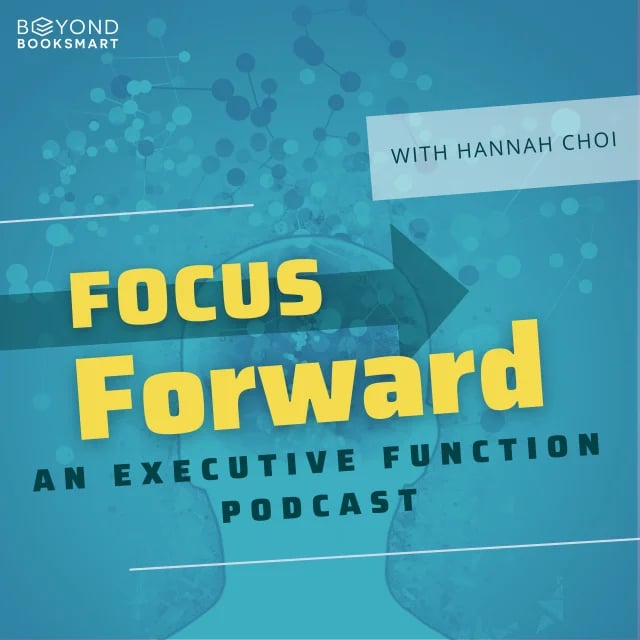
For many people (especially those with Executive Function challenges), managing money can be really stressful. If you can relate...
Our coaches are experts at evaluating and supporting Executive Functioning skills for high school students. Read on to learn how to tell if your child or student is struggling with Executive Function. Contact us to help your teen build the life skills they need to thrive at school, home, and far beyond!

By the time students reach high school, they’re expected to have a solid foundation of Executive Functioning skills to manage the increasing demands of academics, extracurriculars, and social life. These skills help them stay organized, complete assignments on time, balance responsibilities, and prepare for the independence of college or the workforce. Below are some of the key Executive Functioning abilities that set high schoolers up for success.
Take our short assessment and receive free resources to help support your student's #1 Executive Function challenge area.
.png?width=940&height=788&name=Student%20EF%20Assessment%20Graphic%20(2).png)
While every teenager develops at their own pace, there are signs that a high schooler may be struggling with Executive Functioning. If these skills haven’t developed properly, it often shows up in ways that feel frustrating for both students and parents. You might notice constant battles over homework, forgotten deadlines, or difficulty staying focused and motivated. Recognizing these patterns in Executive Functioning for high school students early can help you understand when your teen may need extra support. Parents and teachers may notice:
Listen to high schooler Georgia’s inspiring story of how Executive Function coaching not only improved her academic performance but also mended her relationship with her parents.
At Beyond Booksmart, we believe every student can build the skills they need to succeed. They just need the right strategies to get there!
Our approach takes common challenges like procrastination, disorganization, and stress, and breaks them down into practical tools students can actually use in daily life. From checklists and planning routines to attention-boosting tricks and emotional regulation techniques, these strategies are designed to make school (and life) feel more manageable. Read on to learn some of our coaches’ top Executive Functioning strategies for high school students.
A student's tendency to use the snooze button isn’t the main issue; there’s a lack of planning on their part that makes the morning routine more frantic than it needs to be. If it's wardrobe indecision that's driving the morning crush, we might even suggest enlisting the help of Snapchat for this (bear with us, here). Each night, the student could pick out three potential outfits and Snap them to friends. Whichever gets the votes goes right to the on-deck area for the morning. Students can also set up daily alerts for 8:30 pm the night before that walk them through a checklist of items they need to pack up: lunch, homework folder, planner, textbooks, and gym clothes. This way, they can get to school with homework in hand and a lot less stress.

Although it’s tough to maintain your attention when a subject that you find uninteresting is presented in a dull manner, learning to do so is an important part of developing Executive Functioning for high school students.
Students can’t change a teacher's voice or teaching style or the subject, but they can change what they do when they listen to it. That might start with posture. Sitting upright rather than slouched over can help students get more oxygen into their lungs to feel more alert. So might the way they take notes — by finding a method that works for them (jotting down keywords, diagramming concepts, connecting chemistry to other aspects of her life). Other students have success by challenging themselves to participate in class a given number of times or by popping a strong-tasting mint to boost alertness.
Students' tendency to put off their homework until the last possible minute is understandable. The amount of energy and attention students need to focus on classes all day leaves them with little gas in the tank to begin a homework session. Add in distractions from friends texting and a younger brother watching cartoons in the next room and students' task initiation skills are put to the ultimate test.
When teaching Executive Functioning skills to high school students, start by encouraging them to set up a to-do list for the evening. If distractions are the real barrier to getting started, they can try reducing their effect. They might try the Forest app on their phone to “plant” a tree on their phone so that while they work, it grows. If they touch their phone, the tree dies. If the distractions come through on the computer, installing Freedom might do the trick as this widget can block the user's access to tempting websites for a set amount of time. And, of course, they need to be mindful to relocate away from sources of distraction like siblings watching TV or overexcited pets who want attention.

High school comes with a flood of responsibilities - assignments, practices, projects, chores, and that one form they keep forgetting to give back to the office. Trying to remember it all without a system is like trying to juggle with one hand tied behind their back. A simple checklist can take that mental clutter and turn it into a clear plan of action.
Some students like the classic paper list they can cross off with a bold pen stroke (instant satisfaction), while others prefer apps like Todoist or Google Keep that send reminders straight to their phone. The trick is to make the checklist realistic. Break big assignments into smaller steps, and celebrate checking them off one at a time. Over time, it stops being just a list and starts being a map that keeps the day on track.
Even the most organized to-do list won’t help if stress, frustration, or anxiety are running the show. Emotional regulation is a key executive function skill for high school students and luckily, it’s one that can be practiced just like note-taking or time management.
One quick reset can be as simple as taking a few deep breaths before diving into homework or taking a five-minute break to regroup after a tough class. Other students find it helpful to keep a “calm-down toolkit” on hand. Think earbuds with a go-to playlist, a stress ball, or even a short walk around the block. Writing down what’s on their mind can also clear out mental clutter and make big feelings feel more manageable. The goal isn’t to avoid emotions (that’s impossible), but to have a set of strategies ready so they don’t derail the rest of the day.
Sometimes, no matter how many apps a student downloads or checklists they try, staying organized and on track still feels overwhelming. That’s where working with an executive function coach can make a huge difference. A coach isn’t there to pile on more rules - they work alongside students to figure out what’s really getting in the way and build strategies that fit their unique style.
Maybe that means setting up a homework routine that actually sticks, finding tricks to beat procrastination, or learning how to plan ahead without feeling stressed. With regular support and accountability, students can move from feeling like school is running them to actually running the show themselves.
.jpg?width=1333&height=2000&name=pexels-karolina-grabowska-8003579%20(1).jpg)

Whether you're a parent looking to better support your child or are simply looking to improve your own Executive Function skills, this podcast is for you.

For many people (especially those with Executive Function challenges), managing money can be really stressful. If you can relate...
Check out our variety of resources and tips on Executive Function support, ADHD, mental health, and more.
Job searching can be hard for anyone, but for adults with ADHD, it often feels uniquely exhausting, perhaps even bordering on...